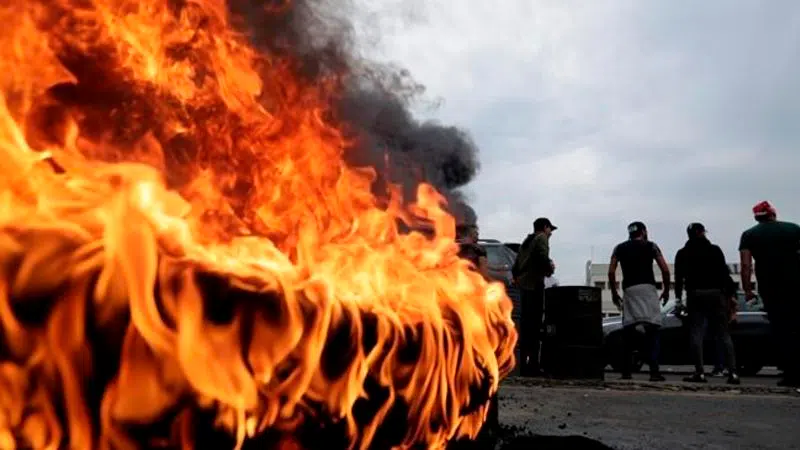
Lebanese protesters get creative as they block roads
BEIRUT — On a main thoroughfare in Beirut on Monday, Lebanese protesters set up a living room with an area rug, a couch and a refrigerator. On another, they held a morning yoga class. And on a third road, a band with an accordion player sang one of the newest slogans of Lebanon’s anti-government protests.
“Hela, hela, hela ho, the road is closed, sweetie,” the song went — a reflection of how the protesters have grown more creative as they have blocked roads as part of massive anti-government demonstrations underway for the last 12 days.
The protests are directed at the political elites who have dominated the country since its 1975-1990 war, and who many accuse of corruption and economic mismanagement.
In many locations, demonstrators have sat or lain in the streets in a form of civil disobedience, forcing security forces to drag them away by their arms and legs. In others, they have blocked routes with overturned dumpsters and burned tires, sending black smoke up into the air. Protesters set fires to block the airport road in Beirut early Monday before Lebanese troops in armoured personnel carriers arrived to clear the route.
